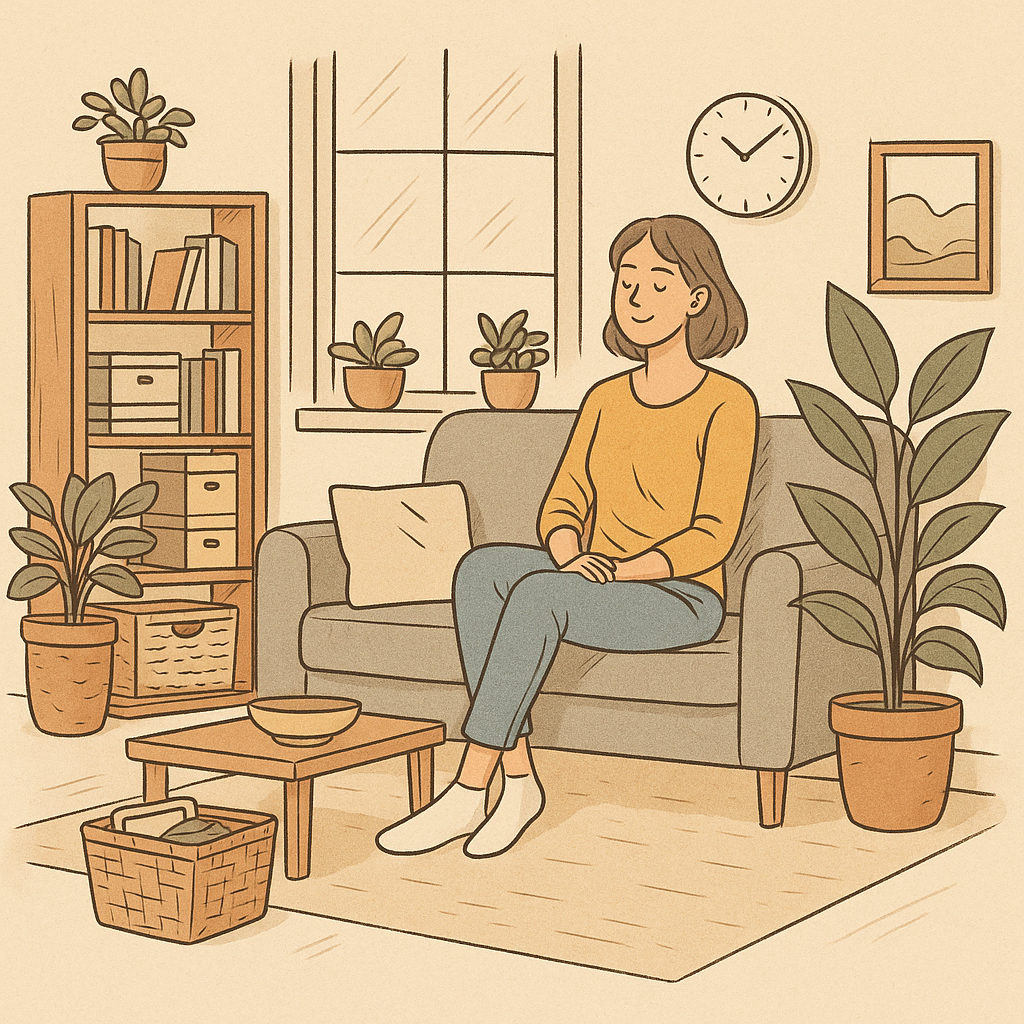Understanding the psychology of tidy spaces helps explain why organizing your environment can feel mentally refreshing. This article dives into how clutter kills focus, fuels stress, and why a clean space offers more than just surface-level relief.

Why Tidy Environments Mentally Matter
1. Clutter Impacts Stress & Mood
Numerous studies confirm that messy spaces raise cortisol—the stress hormone—while a tidy environment reduces anxiety and enhances mood stability. One UCLA study found that clutter correlates with elevated stress and depressive feelings in women .
2. Improving Focus & Productivity
Clutter acts like mental noise, competing for your attention. Princeton research found that organized spaces improve task completion and executive functions. Likewise, the Association of Organized Living reported that tidiness promotes sharper focus and stronger memory.
3. Emotional Control & Self-Esteem
Dealing with a cluttered space can trigger guilt, shame, and indecisiveness. In contrast, organizing helps restore a sense of agency and confidence.
Emerging Trends: The Rise of Smart Decluttering
Personification Techniques
Decluttering experts advocate personifying items—imagining them as having emotions or purposes (like a sweater longing to keep someone warm). This method reduces guilt when letting go.
Nature-Inspired Indoor Spaces
Recent research shows that integrating natural materials at home can boost moods and empower residents—especially in urban environments.
How to Apply the Psychology of Tidy Spaces at Home
A. Quick Decluttering Routine
- Pick one small zone (a drawer, desk corner)
- Sort into keep, donate, toss
- Ask: Does it serve a purpose or bring joy?
- Use baskets for temporary sorting
B. Personalize Your Space
- Add plants or local wood accents
- Let light and air flow
- Include one sentimental item—no more
C. Develop Habits
- A 10-minute daily tidy—works better than long cleanups
- Use visual cues like backward hangers to notice unused items
Practical Tips for Beginners
- Set an intention (“I want a calm workspace”)
- Use 5-minute timers to overcome overwhelm
- Make it social—invite a friend or family member
- Track progress visually: Watch spaces improve and mood follow
Addressing Extremes: From Clutter to Hoarding
For individuals facing hoarding issues, clutter is far more serious than neglect. Clinical data shows that hoarding often involves deep emotional attachments linked to anxiety and trauma. Effective treatment usually combines cognitive‑behavioral therapy with real-life organizing support.
Science Behind It: Environmental Psychology
Studies demonstrate that spatial control and meaningful place-design reduce stress, while crowding and disorder tend to elevate cortisol levels. The Attention Restoration and Stress Reduction theories explain how clear, meaningful spaces promote emotional balance.
Ready-to-Use 7-Step Tidy Plan
- Choose your keyphrase: psychology of tidy spaces
- Set your goal: calm, organized, joyful
- Gather your tools: bins, labels, timer
- Declutter mindfully: sort with intention
- Organize essentials: designate homes for each item
- Delete digital clutter: clear desktop and app icons
- Maintain daily: 5–10 minutes before bed
Long-Term Benefits to Expect
- Better sleep—bedrooms free of mess help relaxation
- Reduced anxiety—symbolic “mental resets” through spring cleaning
- Greater self-efficacy—small wins build motivation and resilience
Conclusion
Amid modern life’s chaos, the psychology of tidy spaces reveals how physical order fosters mental order. By integrating easy routines, emotionally intelligent strategies, and meaningful design, you can upgrade your space—and your mental well-being. Start small, stay consistent, and let clarity follow.
References
- GVMA. The Mental Health Benefits of Staying Organized. 2025.
- Princeton University & UConn. Studies on clutter and stress, 2023.
- Psychology Today; correlation of clutter with anxiety & depression, 2022.
- Homes & Gardens. Personifying items for guilt-free decluttering. 2025.
- ArXiv. User-Led Indoor Environment Modifications Using Natural Materials. Jun 6, 2025.
- Verywell Mind. Spring cleaning and symbolic mental resets. 2022.
- Reddit r/declutter. UCLA cortisol study—women in cluttered homes.
- APA & Allure. Pandemic-era stress and spring cleaning surge.
- National Geographic. Productivity boost via organization.






